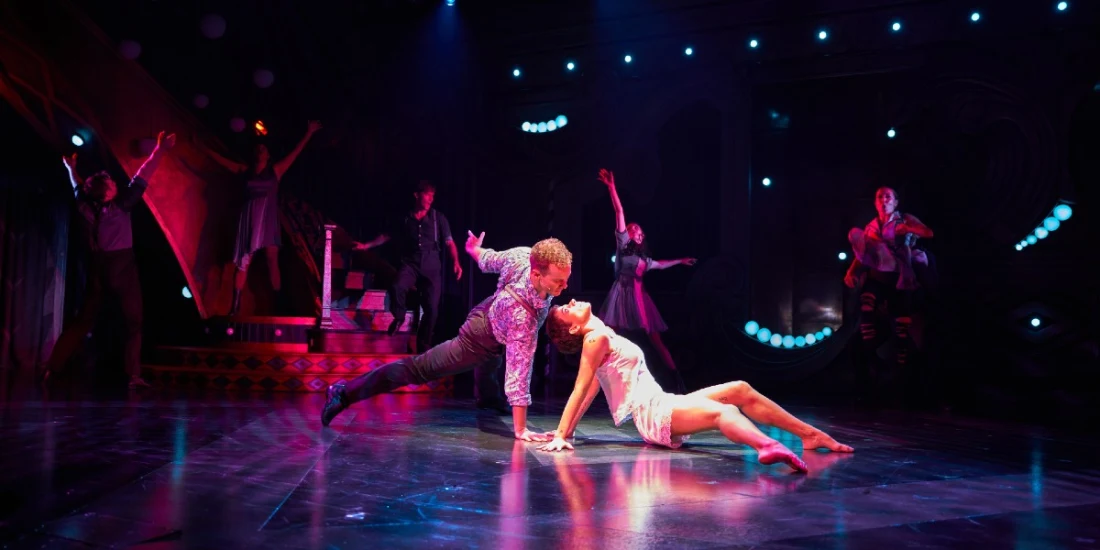'Only Gold' review — in dreamlike dance musical, one move is worth a thousand words
"Following your heart" is an amorphous thing. It can be hard to know exactly what the heart wants: Sometimes it's a person or an object, but other times it's something less concrete, like freedom or respect. Regardless, it can be tricky to put one's desires into words. In that case, there's another option: expressing them with the body.
That's the idea that grounds Only Gold, a new dance musical directed, choreographed, and co-written by Hamilton choreographer Andy Blankenbuehler. What shades of desperation, longing, loneliness, or joy a whole scene of dialogue or multiple songs can't always capture, the slightest motion does.
That's no surprise, as Blankenbuehler has three Tonys under his belt for choreography, including for Hamilton. Only Gold is, however, his first foray into theatrical writing, which also shows. The plot goes thus: A royal family arrives in Paris and, by happenstance, cross paths with an ordinary married couple there, and they encourage each other to make their dreams a reality.
All involved are chasing some kind of desire: King Belenus (Terrence Mann) wants to rekindle his love with his distant wife, Queen Roksana (Karine Plantadit), who first wants him to change. Their daughter Tooba (Gaby Diaz) wants to escape her arranged marriage to a count and marry the Parisian bellboy Jacques (Ryan Steele). Meanwhile, the Parisian watchmaker Henri (Ryan VanDenBoom) achieves his dream of designing jewelry thanks to a commission from Belenus, but his wife, Camille (Hannah Cruz), feels left in the lurch, unable to fulfill her own dream of becoming a pianist.
It's a thin plot, but the nuanced contemporary choreography makes it feel 10 times richer. "Pixie Stix," a peppy number in which Tooba jaunts around Paris, shows the character's freewheeling playfulness. "Work," in which Henri and others make Belenus's jewelry, begins mechanical and rote like an assembly line, and ends with Henri's first solo as he finally lets his creative potential run wild. Roksana's choreography begins subdued and hesitant, gradually growing bigger throughout the show as she musters up the courage to fully advocate for herself to Belenus.
Only two characters don't dance: Belenus and Camille. It's understandable for Mann, an older cast member playing a more rigid character, though Mann performs the character's few movements with suaveness and assurance. Camille is more puzzling; Cruz is appealing and sweet-voiced in the role, but one can't help but wonder why she, unlike everyone else, does not express herself through movement.
The story and dance of Only Gold are set to music by Kate Nash, who doubles as an underused narrator. The score is a mix of original songs and Nash's existing pop hits. All are sufficiently dreamy, even if some lyrics fit the show's plot and world better than others.
The inadequacy of the songs and book to convey what its choreography does makes Only Gold imperfect, but touchingly authentic. Again, it's hard to put wishes into words. I even found it difficult to articulate here the shades of desire Blankenbuehler's choreography conveys. And even if you can't explain every detail of Only Gold or how any given moment makes you feel, the show is guaranteed to stir your heart on a level beyond words.
Only Gold is at MCC Theater through November 27. Get Only Gold tickets on New York Theatre Guide.
Photo credit: Ryan Steele and Gaby Diaz in Only Gold. (Photo by Daniel J. Vasquez)
Originally published on
